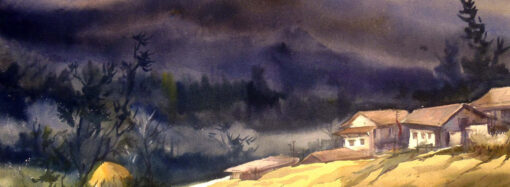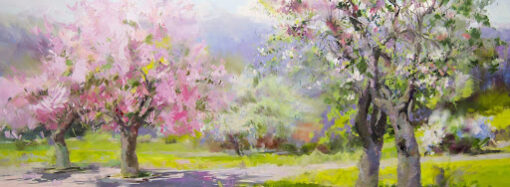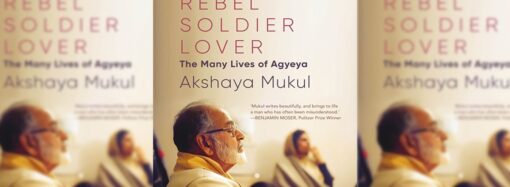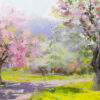Saumya Choudhury, Founding Editor of Delhi Poetry Slam talks about blossoming of online publishing and literary clubs in India and poetry as a therapeutic refuge of readers and writers during pandemic.
Q. How well the online literary publications of India are doing after the immense popularity of international players such as The Paris Review and Literary Hub?
Online literary publications are currently blossoming in India in the form of magazines like Beetle run by Delhi Poetry Slam, crowd-sourced narratives, or college journals. All of them are aiming to firmly establish themselves in the literary realm of digital arena. They are assessing interests of the readers and are attempting to attract new audience. However, it would take sustained efforts until they can become as renowned as their western counterparts.
As the Editor of Beetle Magazine, I analyse the statistics related to our engagement levels with diverse content to gauge the interest of Indian readers and learn which elements catch their attention the most. For example, family drama as genre is evidently more appealing than horror. We are still working on our digital strategy in order to effectively cater to needs of readers.
Q. How has the pandemic played a significant role in popularising such platforms while libraries and bookshops have become a prohibited zone?
I believe that the ongoing pandemic has acted as an impetus for bored people to venture into the sphere of online reading. It has compelled them to explore kaleidoscopic literary worlds from the comfort and safety of their homes. Furthermore, those with an innate passion for reading could even get delivery of books at their residence during this period. Consequently, people turned towards a range of electronic books and digital magazines to satiate their thirst for good literature.
I have observed that in the period of six months beginning from April 2020, the readership of Delhi Poetry Slam has increased by 60 per cent with readers from all over the globe. This surge in the viewership indicates that people who have a proclivity for reading and writing have preferred online mediums. They are seeking a digital alternative in order to stay connected to the realm of literature.
Being an old-school, I don’t think the effect of books can be equated with that of online platforms. The blissful sensation of feeling the paper against one’s fingers while skimming through the book’s pages and the nostalgic smell of ink faintly wafting through the air are precious moments for bibliophiles. I believe bookshops and libraries will also pick up from where they left off once things go back to normal.
Q. Do you think poetry is becoming therapeutic during these turbulent times as suggested by soaring popularity of the book The Poetry Pharmacy and the column such as Rx Poetry introduced by The Paris Review?
Both writing and reading poetry is one of the best ways known to mankind to alleviate stress. Perhaps, the popularity of Rumi substantiates this fact. His ardently spiritual poems have been utilised in psychosomatic treatments, owing to their tranquil therapeutic attributes. John Stuart Mill once had stated that reading the works of William Wordsworth assisted him in recovering from depression.
I believe that poetry acts as on outlet, a catalyst, and also as a tool for introspection. Poetry is also something that people seek when they search for solace, comfort, or a sense of belonging. Especially when people are under colossal stress or are residing in places away from their loved ones, they tend to experience a sensation of disassociation or melancholy. Poetry also helps people in practising mindfulness and being in-tune with emotions. In my view, reading or writing poetry as a form of self-care has grown even more important during these turbulent times.
Q. What according to you are most popular these days, the weightiest tomes of pandemic literature, speculative fiction, or poetry?
A. Poetry has become increasingly popular. It is a great way of dealing with disquieting emotions. When people are locked up in their homes, lots of philosophical questions arise, which can be only answered through poetry. This kind of self-awareness is essential in times like these. I think that is vital to be in touch with one’s emotions and poetry equips everyone with a platform to comprehend their sentiments and express them. Poetry therefore is a catalyst for catharsis.
I personally believe that poetry is more accessible than other genres because all these are available in diverse forms ranging from free-verses to haikus and further to pieces embellished with intricate metaphors. There are several forms of poetry that would cater to a multitude of readers, but there is something valuable available for everyone. Moreover, with the burgeoning arena of digital poetry, shorter poems are gaining popularity. These poems tend to stay with people as a mantra to get them through a tumultuous period.
Q. Do you think independent feminist publishers (both print and online) are able to bring best of bibliodiversity in India?
A. I completely agree with that and I truly commend the impeccable work done by feminist publishers like Zubaan, run by Urvashi Butalia. She is a prolific personality in the women’s movement of India possessing an illustrious career in both academia and in literary world. Such publishers have eloquently attempted to shatter stereotypes, combat societal biases and evils. In addition to it, they have disseminated knowledge in its nascent form. I have observed that women writers are incredibly diverse and their narratives are strikingly vivid.
I think the Indian feminist publishers have accomplished an amazing feat by providing a platform to the marginalised voices and tackling themes that are often neglected. However, the prismatic spectrum of literature stretches far beyond the feminist agenda. Women writers don’t necessarily write in this particular sub-genre. Everyone needs the room to experiment with their craft and explore the affinities related to their genre, whether it is scribbling erotica or post-apocalyptic fiction.
Q. Literature has chronicled catharsis caused due to pandemic and human response to it in classics such as in The Decameroon and The Plague effectively. What do you think is role of diseases in short stories?
A. Disease is equivalent to fear which leads to mass hysteria and frenzy. It is simply a great setting for both fiction and non-fiction because readers are drawn towards threats to mankind, which can wipe out the last traces of life. Writers like Gabriel Garcia Márquez have explored the theme of a pandemic through their writing and this phenomenon showcased that through their tales, readers could experience the sensation of compassion. Readers can associate the lingering fear of a pandemic in the contemporary era with stories.
Short stories that document pandemics can help the reader to traverse physical barriers, such as the ones that everyone faced during the lockdown period. Such literature also connects the readers with a different historical period to a faraway land as they seek comfort. I believe that such literature can offer a ray of hope to its readers and get them through the dismal period of a pandemic.
Q. What does outbreak of pandemic mean for physical book clubs in India which were still in infancy?
A. Indeed, physical book clubs have been significantly impacted by the ongoing pandemic. The simplicity of pondering over the newest releases on a winter evening with a steaming cup of masala chai is unmatchable. The digital transition to Zoom webinars and the lengthy emails can never match the bliss provided by physical company of passionate readers vehemently debating about their views on a controversial book on a cool evening of the lush Chittaranjan Park.
Delhi Poetry Slam has been in the field of literary arts since seven years. We have conducted workshops to intensive writing and slam poetry residencies. But, these activities have come to halt since approximately a year now. An organisation like ours hasn’t experienced a major setback but our deepest sentiments go out to all those who started their book clubs or groups in the recent past. We hope they can pick up gradually when things become normal.


















Leave a Comment
Your email address will not be published. Required fields are marked with *